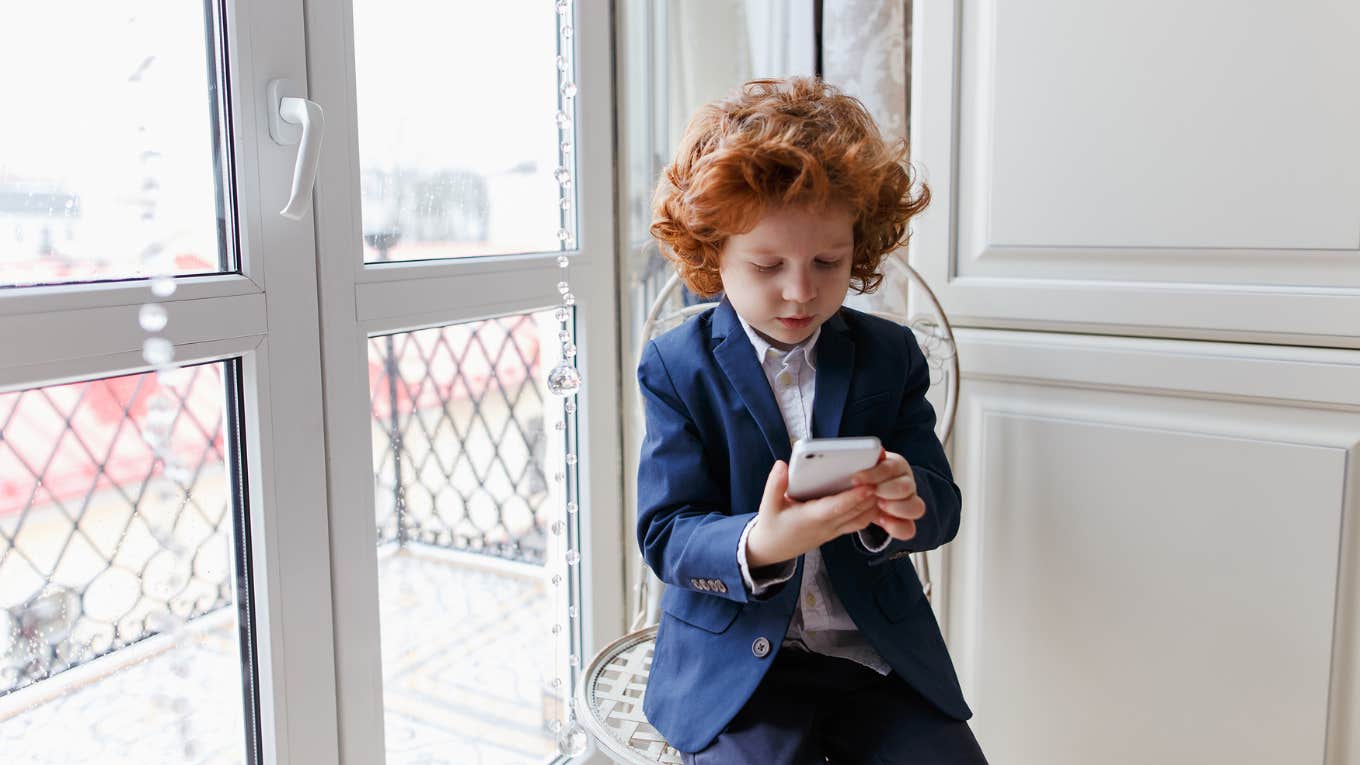Study Finds There's One Risky Thing Kids Do That 31% Of Parents Simply Let Happen, And It's Costing Them Over $2000 A Year
If it's such a problem, why is no one doing anything about it?
 Aliaksei Smalenski | Pexels
Aliaksei Smalenski | Pexels It seems like an increasing number of kids are participating in one risky behavior that parents pretty much allow. This isn’t a stereotypical “risky behavior” that comes with all of those negative connotations. Instead, it’s widely accepted in society. Still, it’s negatively affecting kids, and parents seem like they don’t know what to do about it.
Parenting is a different experience for everyone who takes it on because every child is different. Some need to be watched like a hawk, while others can be given a little more trust. But even the best kids mess up from time to time and don’t do the right thing. But even those once-in-a-while mistakes need to be addressed; otherwise, kids don't learn from them.
31% of parents said their kids are making online purchases without asking their permission.
The study, commissioned by the company Achieve and conducted by Talker Research, included 2,000 parents with kids under the age of 18 who lived at home, according to Steve Fink, who reported on the research for StudyFinds. Apparently, most of those parents reported that these purchases are costing them about $170 each time one happens.
 Irina WS | Shutterstock
Irina WS | Shutterstock
So, what are kids spending their money on in these online purchases? Not exactly what you would expect. Some kids bought big-ticket electronics, like phones and smartwatches. As if having a new iPhone show up at your door wasn’t crazy enough, parents also said that their kids are buying stocks and cryptocurrency.
Even though kids are going crazy, spending their parents’ money on pretty much everything, their parents aren’t really doing anything to stop them. Twenty-three percent of parents said they “rarely or never” check in on what their children are doing with debit and credit cards, and 11% said their kids don’t need their permission before buying things online.
Children just aren’t learning the value of a dollar today.
I’m old enough to remember my parents pulling out cash and coins to teach me what money was worth, but it’s hard to do that when all you have is a credit or debit card. In fact, it almost makes it seem like there are endless amounts of money to be spent, and you’ll never run out.
Parents are definitely feeling the gravity of this issue. Seventy-two percent of the parents surveyed felt like their kids didn’t know the true value of a dollar. Forty-four percent said they have a more difficult time teaching their kids about digital money than paper money, but that’s really all they have, and all their kids are spending online.
Brad Stroh, the co-founder and co-CEO of Achieve, said this is where parents have to be careful. “Parents are busier than ever and struggle to keep up with monitoring their kids’ purchases,” he said. “However, it’s important that they have a game plan to teach their kids financial awareness so they understand the value of money early on.”
Financial literacy education isn’t given the attention it deserves.
Sixty-one percent of the parents surveyed said that they wished that a financial expert could work with their kids to teach them about money and spending. This does cause one to wonder if the financial literacy ball was dropped somewhere.
 cottonbro studio | Pexels
cottonbro studio | Pexels
According to Commercial Bank of California, only seven states in the U.S. require students to take a personal finance class in high school. Schools tend to be much more focused on test scores that make them look good than on actual life skills that you need to be a successful adult.
But without financial literacy, Investopedia contributor Jason Fernando noted that someone can end up with “poor credit, bankruptcy, and housing foreclosure.” Public education institutions really need to do better when it comes to teaching children these important concepts. Of course, the learning starts at home, and parents are the first line of defense. More closely monitoring online purchases could be a good place to start.
Mary-Faith Martinez is a writer with a bachelor’s degree in English and Journalism who covers news, psychology, lifestyle, and human interest topics.

